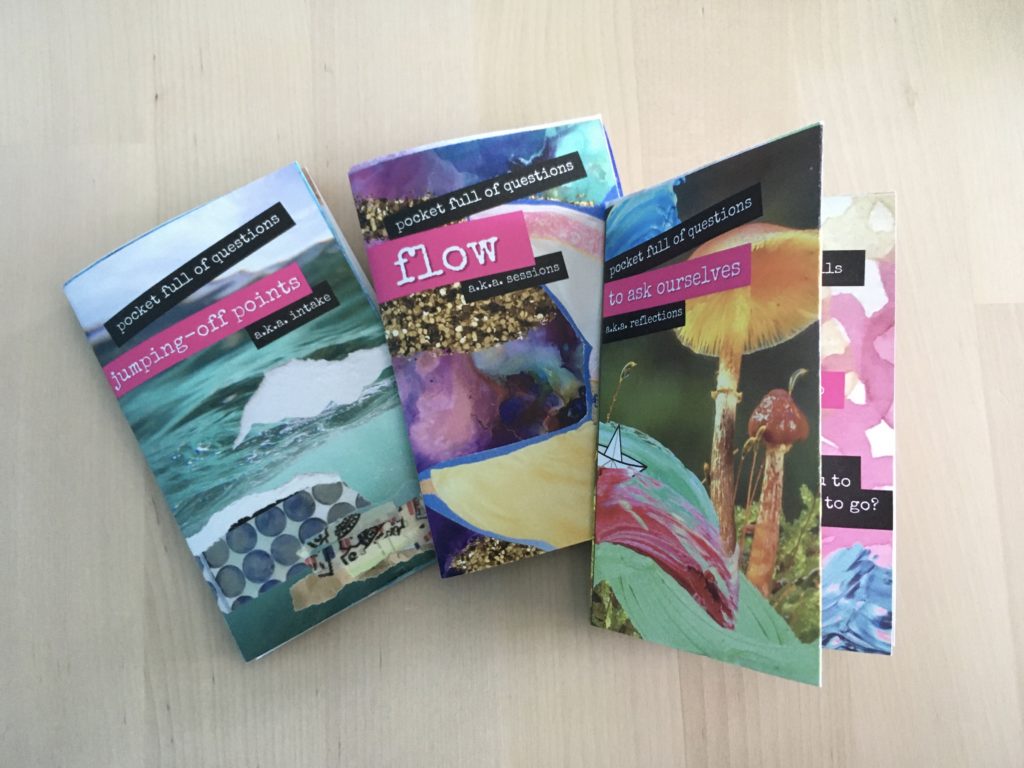
Pocket full of questions: A series of zines
> Print/cut/fold and make your own!
Jumping off points [a.k.a. intake] | Print DIY zine | Read PDF | Image descriptions
Flow [a.k.a. sessions] | Print DIY zine | Read PDF | Image descriptions
Ask ourselves [a.k.a. reflections] | Print DIY zine | Read PDF | Image descriptions
> Limited full-colour print copies available – $15 for the series incl. shipping. 100% of proceeds go to a Toronto-based harm reduction organization. Click here to request a copy.
This series of zines are created from our positions as racialized practitioners in the creative arts therapies. It comes from a process of putting together words and images that are meaningful to us, in conversations, poetry and collages. It is rooted in our experiences of accessing therapy or mental health support. The felt-sense of harm in these relationships. Experiences of feeling dismissed, silenced, feeling small, not given space to explore how racism impacted our feelings/thinking/being, but instead being told that we were thinking and doing wrong.
“No but’s!”
“I told you so.”
“You are not answering my questions.”
Seeking service didn’t feel safe. Therapists posing as experts pushing their worldviews as universally beneficial and powering over. Leaving no space for our own cultural wisdoms and the in-betweens. Taking away space for people to exercise power is a form of violence.
But our exposure to violence, overt racism, criticism and judgement perhaps made us more sensitive to those who are seen as others. People who have been through a lot perhaps can understand what a lot can look like, and notice violence when it shows up.
We have assumptions, biases, and lived experiences. They inform us about the other, and inform the ways we interact with one another.
What if instead of a toolbox full of therapeutic modalities created by assumed experts, we also carry a pocket full of questions when we meet people who are looking for support?
What if we ask ourselves questions in order to step back, take time, re-evaluate what we said and what we did?
What if we step into a relational space not with things that make us believe we know what to do, but with questions to figure out what to do together with the person/people we are in relationship?
What if the questions themselves are tools, or can help us form tools, to name our assumptions, biases, implicit standards from which we measure people based on our own experiences – to name the patterns of harm and violence we are potentially replicating?
We invite you to question with us.
This collaboration took place in Tkaronto, traditional territory of the Anishinaabek, Haudenosaunee, and Huron-Wendat, subject to Treaty 13 between the Mississaugas of the Credit and the Crown. We are settlers on this land, grateful for the unearned privileges and gifts from this land that support our livelihood and wellbeing, and committed to living into our responsibility in dismantling colonial and racist violence.
Virginia Jahyu https://artstherapy.ca/
Patricia Ki https://mappingcare.art/